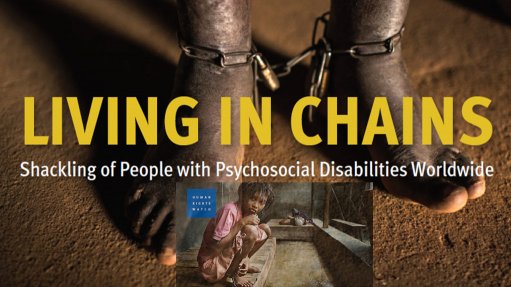
Around the world, hundreds of thousands of men, women, and children with mental health conditions have been shackled—chained or locked in confined spaces—at least once in their lives.
Many are held in overcrowded, filthy rooms, sheds, cages, or animal shelters and are forced to eat, sleep, urinate, and defecate in the same tiny area. This inhumane practice—called “shackling”—exists due to inadequate support and mental health services as well as widespread beliefs that stigmatize people with psychosocial disabilities.
Globally, an estimated 792 million people or 1 in 10 people, including 1 in 5 children, have a mental health condition. Depression, which is the leading cause of disability, is reported to be twice as common in women than men. Women, given the high incidence of sexual violence they suffer, are also disproportionately affected by Post-Traumatic Stress Disorder (PTSD).
Yet, mental health draws only limited government attention. On average, countries spend less than 2 percent of their health budgets on mental health. About 80 percent of people with disabilities, including people with psychosocial disabilities, live in middle or low-income countries where it is often challenging to access healthcare, particularly mental health care.
Report by the Human Rights Watch